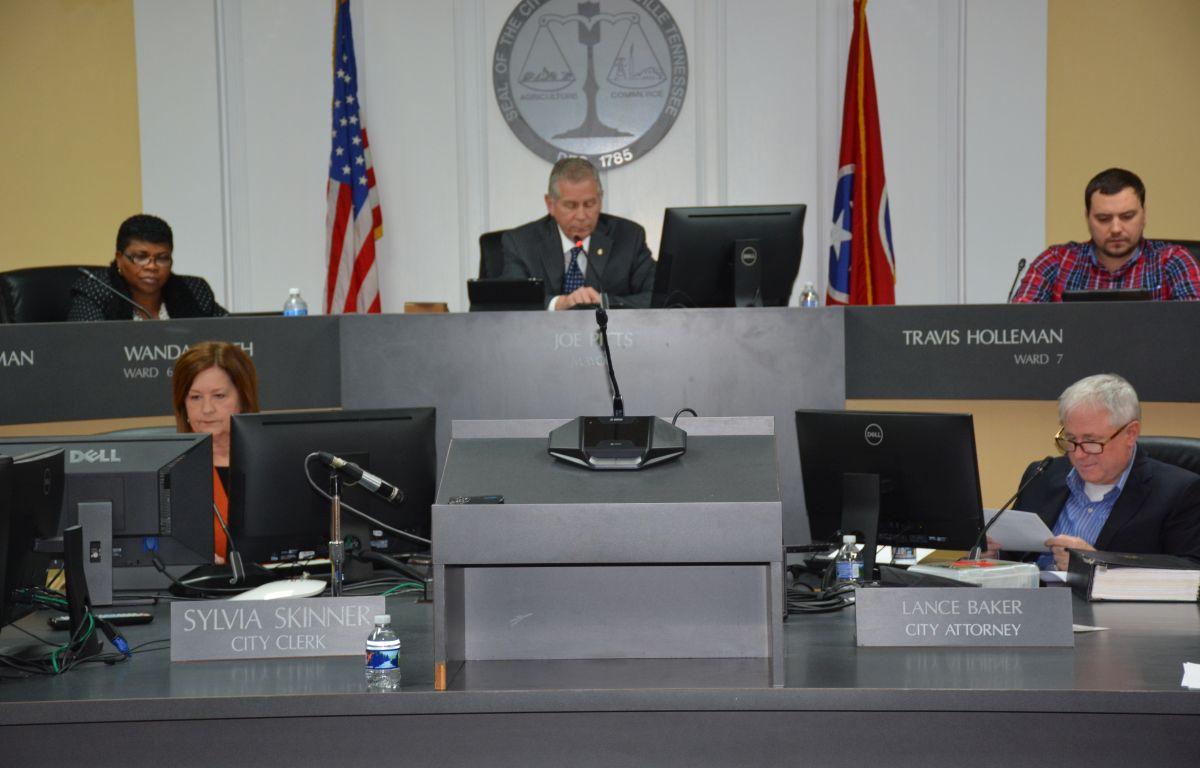CLARKSVILLE, TN (CLARKSVILLE NOW) – A 20-cent property increase was voted down in its second reading by the Clarksville City Council at a special-called budget session on Tuesday, putting the city’s ambitious traffic infrastructure plan at risk.
The city’s 2021 budget, along with the tax increase, failed 7-6. Voting no were Richard Garrett, Dajuan Little, Wallace Redd, Jason Knight, Wanda Allen, Karen Reynolds and Trisha Butler. Voting yes were Vondell Richmond, Wanda Smith, Travis Holleman, Stacey Streetman, Ashlee Evans and Mayor Joe Pitts.
The tax hike had passed 7-3 last week. But Reynolds and Knight on Tuesday changed their votes from the first reading (Reynolds had voted yes on first reading, Knight had abstained). With the addition of Garrett and Little, who were absent from last week’s meeting, that was enough to shift the council’s consensus.
If passed, the tax increase would have brought the city property tax to $1.23 per $100 of assessed value, 1 cent under the $1.24 rate that was in place from 2011 until 2019, with the exception of 2015. Revenue from the increase was intended as funding for the city’s expansive Transportation 2020+ Plan.
Parks and first responders targeted for cuts
Prior to the final vote, Reynolds again brought forth an amendment to reduce the proposed tax rate, this time to $1.19. To reach that number, Reynolds suggested hefty cuts to Parks and Recreation as well as first responder budgets.
Reynolds’ proposal included an approximately $400,000 reduction to Clarksville Police Department, a $300,000 cut to Clarksville Fire Rescue, and a $250,000 cut to Parks & Recreation. She suggested those budgets could be bolstered later by federal COVID relief dollars if spending rules allow.
Reynolds’ amendment, which failed 10-3, drew strong criticism from fellow council members, with Jason Knight calling the suggestion “asinine.”
What’s next?
Without the proposed tax increase as a source of funding, the future of the city’s transportation infrastructure plan is uncertain.
The plan was originally presented to the public in February of this year, and contains several popular projects like sidewalks, road widenings and additional public transit resources. In a study released by the city last month, 64% of citizens polled supported the plan.
However, without a way to fund the plan, the mayor has told city councilors on multiple occasions that the 2020+ Transportation Plan cannot move forward.
The city has until July 1 to reach consensus on a budget, at which point the previous year’s budget will be applied. That gives the city only eight days to pass a budget.
According to City Attorney Lance Baker, the Redd Rule, which prohibits ordinances from being resubmitted for a year after failing, does not apply to budget ordinances. However, a new budget would still require two readings, and any amendments that were passed on the previous ordinance would have to be resubmitted and voted on.


